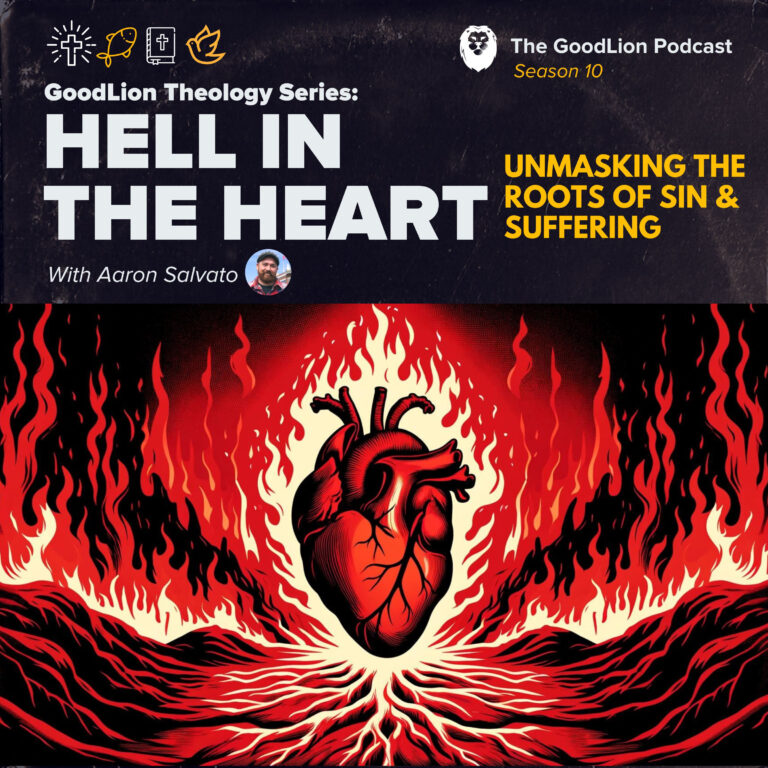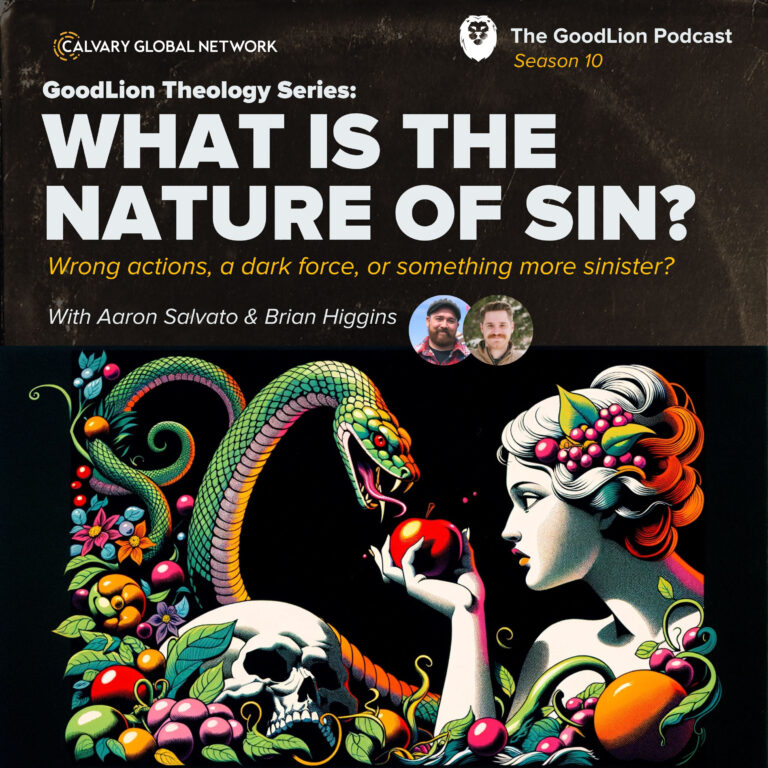
Maybe you have heard the Pastor at your church say things like,
“In the original language, this carries the meaning…”, or
“In the Greek, what is being said is…”.
Maybe you’ve heard this and wondered what he is talking about.
Maybe you’ve heard this and thought why Greek? Do I need to learn Greek?
What is Koine Greek?
First, how do I even pronounce that first word, the ‘K‘ one? I’ve always been taught that it’s pronounced “koy-nay”, and it means common. So Koine Greek is common Greek, street Greek, everyday Greek. Or it was. 2000 years ago.
A quick online search reveals that Koine Greek was used for around a thousand years and forms the basis of Modern Greek. Chiefly used around Greece, Macedonia, and other parts of the surrounding region that had been influenced by the Greek culture, the language is perhaps best known as the language of the New Testament.
Why study and use Koine Greek?
Perhaps some may offer the notion that if we trust in the translation committees of our favourite Christian Bible publisher, and trust that they are good at their work, then there is really no need to study the original languages of the Word of God to us, found in the 66 books of the Protestant Bible, of which Koine Greek is one. Martin Luther addressed this when he said,
‘A simple preacher (it is true) has so many clear passages and texts available through translations that he can know and teach Christ, lead a holy life, and preach to others. But when it comes to interpreting Scripture, and working with it on your own, and disputing with those who cite it incorrectly, he is unequal to the task; that cannot be done without languages. Therefore, although faith and the gospel may indeed be proclaimed by simple preachers without a knowledge of languages, such preaching is flat and tame; people finally become weary and bored with it, and it falls to the ground. But where the preacher is versed in the languages, there is a freshness and vigor in his preaching, Scripture is treated in its entirety, and faith finds itself constantly renewed by a continual variety of words and illustrations.’
Summarising this position taken by Luther, Marc Cortez writes,
‘For Luther, then, we need to know the original languages because they add power to our messages, confidence to our ministries, depth to our arguments.’
When presented with this as a rationale for learning Koine Greek, very few Pastors and teachers would say no to the offer of more powerful messages, more confident ministries, and more knowledge with which to persuade. In the same article, Luther touches on a more spiritual reason for the study and use of Koine in the ministry, that of Gospel protection.
‘We will not long preserve the gospel without the languages. The languages are the sheath in which this sword of the Spirit is contained; they are the casket in which this jewel is enshrined; they are the vessel in which this wine is held; they are the larder in which this food is stored; and, as the gospel itself points out, they are the baskets in which are kept these loaves and fishes and fragments.’
Again, to read of the importance placed upon the language by someone with such a strong hermeneutical focus as Luther, it is hard for the modern-day teacher of Scripture to disagree with the stated fact that learning Koine Greek is an important thing to do.
Prevention of mishandling the Word
Often times in the contemporary Christian world, it is easy to come across teachers who are plainly mishandling the Word of God, perhaps to their own advantage, perhaps due to a position of sheer ignorance. Either way, it then becomes important, as Luther referenced above, that the conscientious and committed Pastor-Teacher know what the Word of God is truly saying. This allows false teaching to be labeled as false teaching, and false teachers to be exposed as the charlatans or ignorami that they are, to put it politely.
For example, a quick search in a Greek lexicon would define repentance as follows,
‘The verb metamelomai, μεταμέλομαι, is used of a change of mind, such as to produce regret or even remorse on account of sin, but not necessarily a change of heart…
Metanoeo, μετανοέω, meaning to change one’s mind and purpose, as the result of after knowledge.
This verb, with…the cognate noun metanoia, μετάνοια, is used of true repentance, a change of mind and purpose and life, to which remission of sin is promised.
When, then, a reasonably well-known (false) handler of God’s Word says something like the following, we can see that no Greek study has taken place, nor study of any kind,
‘To many Christians, repentance refers to having an altar call where people come forward and weep at the altar and get right with God. That is a legitimate expression of repentance, but it’s not what the word repentance means. “Re” means to go back. “Pent” is like the penthouse, the top floor of a building. Repent, then, means to go back to God’s perspective on reality.’
Insert face-slapping emoji here in your mind (or something stronger) if you so wish.
Even someone with minimal and limited experience and understanding of the original languages (of which category I would place myself into) can see that this is wildly inaccurate, and just plain wrong.
The point in discussion here is the need for the minister to have a working knowledge of Koine Greek, and it should go without saying that this ψευδοδιδάσκαλος has clearly not consulted a lexicon, studied the original language, nor pays any heed to the study of Koine Greek. Even the simplest look at an interlinear, or reverse interlinear text, perhaps even a glance at readily available Bible software would show that repentance does not mean to go back to the penthouse of your existence.
Another such example would the Jehovah’s Witness’ rendition of John 1.1c, wherein an indefinite article is inserted into the phrase
‘…and the Word was a God.’.
The Greek reads as follows,
καὶ Θεὸς ἦν ὁ λόγος.
As discussed in Dr. John Bechtle’s excellent book ‘Greek Behind the Prof’s Back’, Greek shows relationships and gives meaning to sentences through word endings rather than word order, and no indefinite article exists in the language.
To counter this fallacious and self-serving translation purported by the Watchtower Society, we need look no further than the Greek text. However, should the original languages never be consulted personally by the contemporary Pastor-Teacher, then heretical teachings have to be countered on the understanding and application of others, which, ironically, is how many door-to-door visitors present their (false) arguments.
Turning back to John 1.1c, καὶ Θεὸς ἦν ὁ λόγος, the presence of ὁ before λόγος shows us that this is the subject of the sentence, and that Θεὸς, in this case, is the object. Literally, word-for-word, this would be rendered God was the Word.
In contemporary English, this means something different, unless understood in the English of the beloved Star Wars character Yoda.
Dr. Bechtle writes,
‘In English, we can recognize the subject of a sentence by looking at word order. In Greek, we must look at the word endings. John 1:1 is trickier than most verses, because both “God” (theos) and “Word” (logos) have the same ending. The usual way to mark off the subject clearly was to add “the” to the subject and leave it off the direct object. That is precisely what John did here…John was simply using good grammar, and making it clear that he intended to say, “The Word was God” rather than “God was the Word,” a statement with some theological drawbacks. John constructed his sentence in the one way that would preserve proper grammar and sound doctrine, declaring that “the Word was God.”’.
One particular reason to learn a little Greek then is to be able to spot false teaching as false teaching.
Depth and Richness
In addition to this, reading and studying the Word in its original language can add a depth and richness to Scripture that simply cannot be taken to the same degree from a translation. To be sure, the wonderful work done by many a trustworthy translation committee has allowed a plethora of people around the world to read the Word of God in a language that they readily understand, but the stellar work of these committees is resting on their understanding of the original languages. For the average Pastor-Teacher, even a little knowledge can add such a depth.
For example, many readings of John 3.16 would take the inherent truth from within that those who believe in Jesus will have eternal life,
‘“For God so loved the world, that he gave his only Son, that whoever believes in him should not perish but have eternal life.’
However, when reading the passage in Koine Greek, the emphasis seems to be equally on the motivating factor for this sinless, spotless sacrifice.
‘Οὕτω γὰρ ἠγάπησεν ὁ Θεὸς τὸν κόσμον, ὥστε τὸν υἱὸν αὐτοῦ τὸν μονογενῆ ἔδωκεν, ἵνα πᾶς ὁ πιστεύων εἰς αὐτὸν μὴ ἀπόληται, ἀλλ᾿ ἔχῃ ζωὴν αἰώνιον.’
In context, Οὕτω γὰρ shows and emphasises the manner and the degree to which God loved the world. Straight away, then, we see that this wonderful verse contains the bedrock truth that faith in Jesus results in eternal life, but also that this was born out of the motivation of God’s love.
This terrific truth is, sadly, often missed in the regular English rendition of this verse. It is easy enough to read over ‘For God so loved the world, that he gave his only Son…’ as the precursor to the main point.
If asked the meaning of this phrase, many Bible-believing Christians may struggle to answer, as the main point of the verse, so it is often taught, lies later on with, ‘…whoever believes in him should not perish but have eternal life.’ The fact that Jesus was even sent to be the object of our faith is clearly shown when we stop to read the Greek and see its meaning, a depth and richness brought about through the reading of the original language.
Conclusion
Even at the early stage of studying, reading, and using Koine Greek it is possible to see that the benefits to Christian ministry are far-reaching and plural. As presented briefly here, it is evident that even a fractional working knowledge of Koine Greek, nay, even the resources from which to gather a fractional working knowledge such as a basic and free lexicon, can prevent the modern-day Pastor-Teacher from mishandling God’s Word, which is his Scriptural charge (2 Timothy 2.15).
The second major benefit of studying and using Koine Greek in Christian ministry is perhaps most relevant to the new student of the language, to bring a richness and depth to the text. Having barely scratched the surface it is unwise for the Greek student to bring a lot of Greek to the pulpit explicitly. Even if the minister possesses a full working knowledge of Koine Greek, it would still be unwise to use this too much from the pulpit, else we stray into the area of preaching down to people, or lecturing rather than expositing.
That being said, and returning to the usefulness of studying and using Koine Greek even as a beginner, the richness and depth which the Scriptures in their original language bring forth should be reason alone to invest time in studying the language.
One commonly held evangelical belief is that God’s Word is infallible, inerrant, and inspired, yet this applies only to the original text in its original language. By way of simple reasoning then, to read the inerrant, infallible, and inspired Word of God, the contemporary minister must study and use Koine Greek.
So, to answer the initial question, ‘Do I need to learn Greek?’, the answer will be personal. If you want to read the Scripture in the language God communicated it with the human authors, then yes. If you are taking first steps into Christianity, then possibly not. If you are leading a church of God’s people and preach regularly, then a basic working knowledge will certainly be an advantage. Ultimately, this is between you and the Lord. However, the benefits are multiple and tangible and learning Greek will only add to your understanding of God’s Word.
Perhaps we should take the attitude of Ezra, who set his heart to understand the Word of the Lord, to study it, to practice it, and to teach it. Learning the original languages is one step on this journey.
References
Bechtle, D. (1995). Should John 1:1 be translated, “The Word was God” or “The Word was god”? Retrieved from
https://christiananswers.net/q-acb/acb-r001.html
Bechtle, D. (2001). Greek Behind the Profs Back. A Self-Instructional Workbook for New Testament Greek [PDF] (4th ed.). Fishers, IN: The Ezra Project.
Brewer, D. Greek 1. Lecture, Northeast Biblical Institute, NJ.
Britannica – Greece. (2019). Retrieved from https://www.britannica.com/place/Greece/Climate#ref1163621
Britannica – Koine | Greek language. (2019). Retrieved from https://www.britannica.com/topic/Koine-Greek-language
Cortez, M. (2012). Is Learning Greek and Hebrew Really Worth It? | Transformed. Retrieved from https://www.westernseminary.edu/transformedblog/2012/05/14/is-learning-greek-and-hebrew-really-worth-it/
“Repentance,” Easton’s Bible Dictionary, paragraph 6235.
https://accordance.bible/link/read/Easton#6235
Repentance Leads to Transformation. (2014). Retrieved from http://www.lifesupernatural.com/repentance-leads-to-transformation/
The Chicago Statement on Biblical Inerrancy, Creeds, Confessions and Catechisms; ed. David Lang; (Altamonte Springs: OakTree Software, Inc., 2006), paragraph 5798. https://accordance.bible/link/read/Creeds#5798










